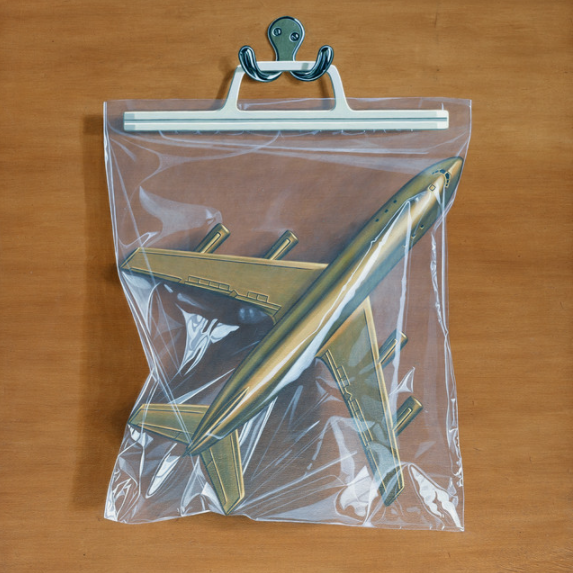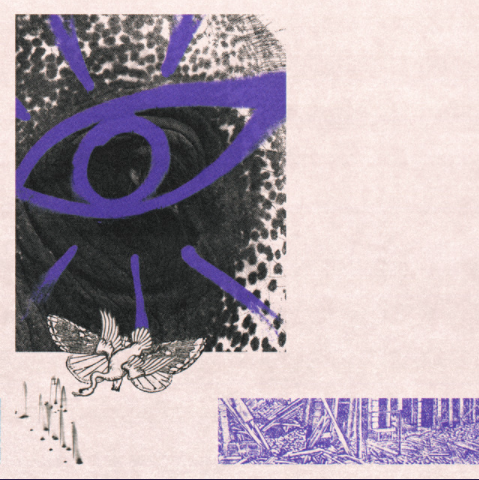Black Country, New Road release a future cult classic
Black Country, New Road’s sophomore album, Ants from Up There, confirms their place as one of the best bands around in a long time

Black Country, New Road have had perhaps an unorthodox journey as a band. In 2018, they formed in Cambridge from the ashes of a former pro- ject. The band quickly began on a dizzying journey to the front of the South London underground post- punk scene, eventually being signed by Ninja Tune and releasing their debut album For The First Time just last year in February 2021. By the time they were the face of the scene, BC,NR had moved on, leaving their post- punk origins behind them. Not slowing down for a sec- ond, the band released their second album, Ants from Up There, exactly 364 days later.
Releasing two albums in a year is an incredible achievement, let alone for both albums to be critically acclaimed – FTFT was nominated for a Mercury Prize, and AFUT has been universally hailed and is an instant contender for album of the year. However, the departure of lead vocalist Isaac Wood just four days before the album’s release has left a more sombre tone over the album – it is a huge achievement, but it is also a goodbye.
AFUT was supposed to be a turning point for the band – a departure from the post-punk roots from which they grew to fame. It was not realised, perhaps, just how significant of a turning point this would be until the announcement of Wood’s leaving. The six- remaining members have stated they are not going to play any songs from the first two albums out of respect for Wood, meaning the BC,NR as we knew it is gone. This is maybe not unexpected from a band who have always done everything in reverse, inverting the convention of releasing an album and then touring it. Many of the singles from FTFT were toured for years before studio release and were dropped from live sets as soon as the band began touring again after FTFT, being replaced by new and ever-evolving tracks that would eventually form AFUT. In fact, the band do not even consider FTFT their debut album, but rather a collection of songs from their early days, indicating how far detached they are from it now. With Wood’s departure, it is likely that all the songs on AFUT will also never be toured again. Within seconds of AFUT it is clear how separated BC,NR have become from their early days. ‘Intro’ is notably different from the ‘ Instrumental’ of FTFT, being a joyous 54-second-long track that explodes into the anthemic ‘Chaos Space Marine’, in contrast to the 5-minute long angsty introductory track for FTFT. Immediately, you can hear the joy from the band that they are playing and releasing music in a genre that they want to be, and are more proud of.
‘Chaos Space Marine’ is the most whimsical and upbeat song on the album, sounding almost like a funfair theme. I was hesitant when I first listened to the track, which was the first single released from the album. The short track was a bold change from the BC,NR I loved, but in the context of the album I understand why the band describe it as the “best song [they have] ever written”. In three minutes, the band are able to establish their new style. A more euphoric and joyous BC,NR are introduced, with the sound taking inspiration from klezmer and virtuosic free-jazz. The whirlwind jazz of FTFT is gone, replaced with a sound that is more cohesive, despite the fact it shouldn’t be on paper. The instrumentation is more varied, the unconventional song structures remain, the rhythms and time signatures are chaotic, but unlike FTFT where these features could leave you whiplashed and left behind, AFUT manages to fuse ideas together in a way that carries the listener alongside them.
The pop culture references in Wood’s lyrics remain, cleverly used as a guise for more complex issues. ‘Chaos Space Marine’ is a Warhammer reference after all, with the song describing a narrator who obsesses over the game as a distraction from their failing relationship. At its core, that is what AFUT is about: a co-dependent relationship that the narrator is in denial of, and their deep emotional turmoil. Throughout the album it becomes more difficult to decipher how the relationship is being described – whether it is a romantic one, or whether it is the relationship between artist and audience. ‘Concorde’ begins as a gentler, waltz-like piece, that grows into an eruptive anthem as the cohesion at the start of the track disintegrates into chaos, whilst the lyrics move from metaphorical imagery to plainer language tainted with despair (“I was made to love you / Can’t you tell?”). It also introduces the motif of the Concorde supersonic jet, a project by the British and French governments that was a failure and far exceeded budget but was not abandoned due to the amount of money already funnelled in and lost to the project. The other person in the narrator’s relationship is described as the “Concorde”, which is used as a metaphor for a romantic sunken-cost fallacy in a failing relationship. The motif of the Concorde jet reoccurs throughout the album as a representation for the failing relationship.
‘Bread Song’ is a quiet and contemplative moment on the album, taking inspiration from Steve Reich, that explores one-sidedness in a relationship, and introduces the feeling of melancholy that later pervades the album. The idea of dependency in a relationship is continued on the next track, ‘ Good Will Hunting’, which is the most conventional and accessible song on the album, beginning as a conventional pop-rock tune that soon descends into dissonance and unconventional song structures.
It is at this point, halfway through the album that the tone shifts into a mood that is much more emotive and painful. The hopefulness and triumph from the start of the album is gone, and the songs become heavier and more heart-breaking. The second half of the album is one I find difficult to listen to, despite how much I love it - ‘ Haldern’ is a track that is almost too agonising. It gives a feeling of heaviness at the bottom of your stomach, and the weight on your chest that makes it hard to get out of bed in the morning. The feeling of sadness it imparts is so all-encompassing that it is hard to encapsulate with words.
‘Mark’s Theme’ is a quiet change of pace, a loving instrumental dedication to saxophonist Lewis Evan’s uncle who was a big supporter of the band. It begins with a heartfelt unaccompanied heartfelt tenor saxophone solo, that is later joined by quiet piano and violin, before going into audio of Mark singing. It is a hauntingly beautiful dedication to the influence that Mark had on Evans, and how that outstretched to the rest of the band. ‘The Place Where He Inserted The Blade’ is my favourite track on the entire album. Wood’s lyrics and vocals express distress – the lyrics are, taken literally, about having a breakdown whilst following a cooking tutorial, and relying on a partner to calm you down – which is perfectly contrasted by the joyful backing vocals and warm accompaniment. It is a cathartic, if not painful listen. I haven’t had such visceral feelings listening to a song since I first heard Car Seat Headrest’s Twin Fantasy. The way the lyrics broach mental health through storytelling that hints at a deeper underlying meaning, and the words that phrase feelings you couldn’t express yourself, make the song (as well as the album as a whole) perhaps the most provocative one I have heard in years.
It is almost impossible to believe that the lyrics for the album were written separately to the instrumentation. The relationship between the two, in how each enhances the other, is breath-taking. The timbre and dynamics, and the articulation and song structure, convey the emotion in Wood’s lyrics with genius.
‘Snow Globes’ is different to anything the band have ever done before. The instrumentation is simple, the song structure is simple, the rhythms are simple. This simplicity is wonderfully contrasted by Charlie Wayne’s drumming, which builds up from a slow rumble to an expressive chaotic sound. The drums are so detached from the song that they almost occupy a completely different soundscape, but somehow the track still feels coherent and cohesive. The juxtaposition of the calm track with the chaotic drumming creates the idea of anguish below a calm exterior, which bubbles to the surface as Wood’s vocals become frantic and shouted as the track explodes into enormity.
The final track on the album, ‘Basketball Shoes’, has been a highlight of a BC,NR set since before their debut album was released. The 12-minute song is almost operatic, with multiple sections that eventually reach the climax of the entire album. The band describe ‘Basketball Shoes’ as the track that AFUT was built around, with musical motifs from the song appearing in other tracks throughout the album. Originally about a parasocial relationship with Charli XCX, ‘Basketball Shoes’ has undergone many evolutions, with the current version omitting all mention of her entirely. The song describes recovery from a codependent relationship, learning to prioritise your own needs again (“now I’m feeling kinda normal with a packed lunch / train rides don’t hurt so much these days”) and how difficult that can be (“if you see me looking strange with a fresh style / I’m still not feeling that great”). The anthemic track explodes into a triumphant finale with the band all singing together as Wood shouts over it. It is the perfect climactic ending for the album, and one Wood should be proud to end his time as frontman of the band on.
It is a shame that AFUT will not get a live performance. I did not appreciate the songs when they were new to me in their live sets, and I would have loved to experience them live with the love for them I now have, but I have deep respect for any artist that prioritises their own needs and wish Wood all the best in his recovery. He has truly achieved something magnificent in his four years with BC,NR - and even if the BC,NR we knew are gone, the group are continuing as a six-piece, and have proven with AFUT that they can take each reinvention in their stride to create something incredible, including the emotivity of mourning pass. And as a sensitive motherfucker, this album makes me want to catapult myself into the sun. If you haven’t heard it yet, go on, let blondie maim you, all too well.









